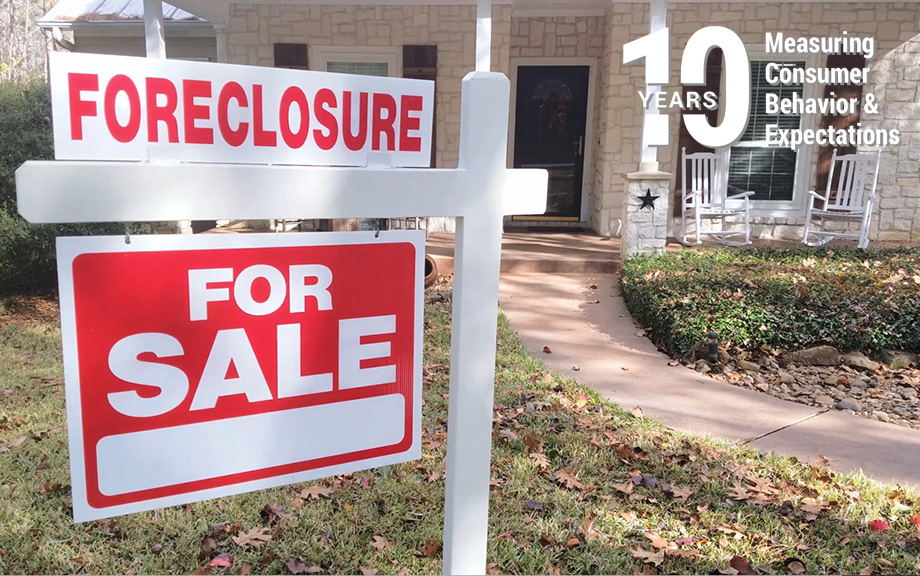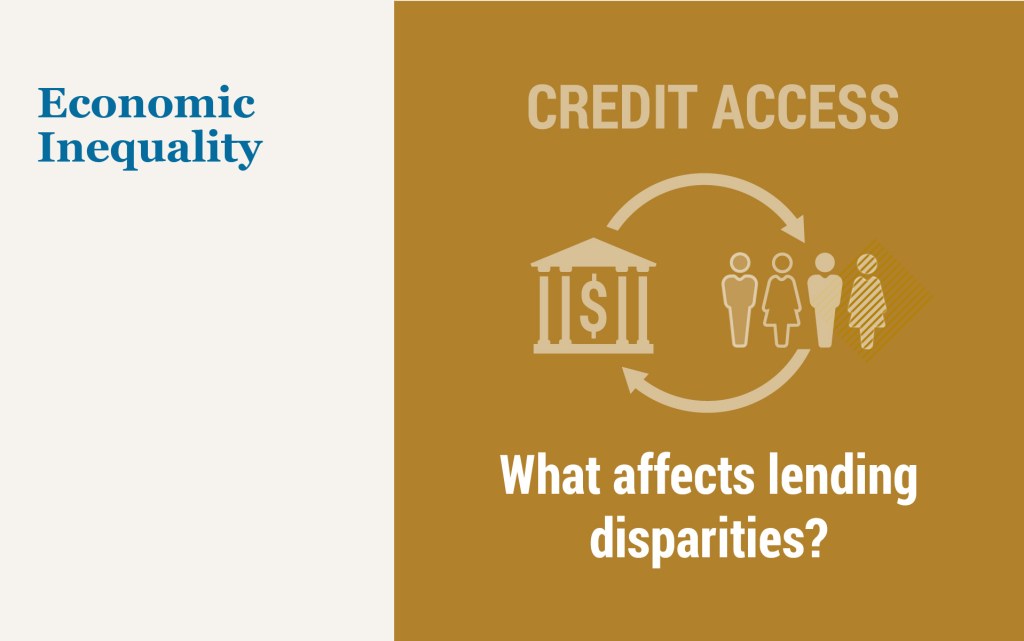Who Is Still on First? An Update of Characteristics of First‑Time Homebuyers

Following the COVID-19 health crisis, home prices and mortgage rates rose sharply. This created concerns that first-time homebuyers (FTBs) would be disadvantaged and would lose ground. Earlier this year, we documented that the share of purchase mortgages by FTBs, as well as their share of home purchases, have actually increased slightly over the past couple of years. It appears that FTBs are holding their own in this challenging housing market. This raises the question of whether the characteristics of FTBs have changed. In a 2019 post, we described the characteristics of these buyers over the period from 2000 to 2016. In this post, we provide an update through 2024.
Flood Risk and Flood Insurance

Recent natural disasters have renewed concerns about insurance markets for natural disaster relief. In January 2025, wildfires wreaked havoc in residential areas outside of Los Angeles. Direct damage estimates for the Los Angeles wildfires range from $76 billion to $131 billion, with only up to $45 billion of insured losses (Li and Yu, 2025). In this post, we examine the state of another disaster insurance market: the flood insurance market. We review features of flood insurance mandates, flood insurance take-up, and connect this to work in a related Staff Report that explores how mortgage lenders manage their exposure to flood risk. Mortgages are a transmission channel for monetary policy and also an important financial product for both banks and nonbank lenders that actively participate in the mortgage market.
A Check‑In on the Mortgage Market

Debt balances continued to march upward in the second quarter of 2025, according to the latest Quarterly Report on Household Debt and Credit from the New York Fed’s Center for Microeconomic Data. Mortgage balances in particular saw an increase of $131 billion. Following a steep rise in home prices since 2019, several housing markets have seen dips in prices and concerns were sparked about the state of the mortgage market. Here, we disaggregate mortgage balances and delinquency rates by type and region to better understand the landscape of the current mortgage market, where any ongoing risks may lie, regionally and by product.
Are First‑Time Home Buyers Facing Desperate Times?

Based on recent proposals and policy dialogue, it would appear that first-time home buyers (FTB) are indeed facing desperate times. For example, in a recent Urban Institute study, Michael Stegman, Ted Tozer, and Richard Green advocate for a zero-downpayment Federal Housing Administration (FHA) mortgage. They argue that this would be a more efficient way to deliver much needed support to help households transition to homeownership given the challenges of high house prices and mortgage rates.
How Are They Now? A Checkup on Homeowners Who Experienced Foreclosure

The end of the Great Recession marked the beginning of the longest economic expansion in U.S. history. The Great Recession, with its dramatic housing bust, led to a wave of home foreclosures as overleveraged borrowers found themselves unable to meet their payment obligations. In early 2009, the New York Fed’s Research Group launched the Consumer Credit Panel (CCP), a foundational data set of the Center for Microeconomic Data, to monitor the financial health of Americans as the economy recovered. The CCP, which is based on anonymized credit report data from Equifax, gives us an opportunity to track individuals during the period leading to the foreclosure, observe when a flag is added to their credit report and then—years later—removed. Here, we examine the longer-term impact of a foreclosure on borrowers’ credit scores and borrowing experiences: do they return to borrowing, or shy away from credit use and homeownership after their earlier bad experience?
Mortgage Rate Lock‑In and Homeowners’ Moving Plans

The U.S. housing market has had a tumultuous few years. After falling to record lows during the pandemic, the average 30-year mortgage rate rapidly increased in 2022 and 2023 and now hovers near a two-decade high of 7.2 percent. For those that locked in a low mortgage rate prior to 2022, this steep increase has significantly increased the cost of moving, as taking out a mortgage at current rates would potentially increase their monthly housing payment by hundreds or thousands of dollars, even if the amount they borrowed remained unchanged. As shown by Ferreira et al. (2011), this lock-in effect has the potential to reduce geographic mobility and turnover in the housing market and has gained the attention of Federal Reserve leaders. In this post, we utilize special questions from the Federal Reserve Bank of New York’s 2023 and 2024 SCE Housing Surveys to estimate the extent to which mortgage rate lock-in is suppressing U.S. household’s moving plans.
What Happens to U.S. Activity and Inflation if China’s Property Sector Leads to a Crisis?

A previous post explored the potential implications for U.S. growth and inflation of a manufacturing-led boom in China. This post considers spillovers to the U.S. from a downside scenario, one in which China’s ongoing property sector slump takes another leg down and precipitates an economic hard landing and financial crisis.
An Overlooked Factor in Banks’ Lending to Minorities

In the second quarter of 2022, the homeownership rate for white households was 75 percent, compared to 45 percent for Black households and 48 percent for Hispanic households. One reason for these differences, virtually unchanged in the last few decades, is uneven access to credit. Studies have documented that minorities are more likely to be denied credit, pay higher rates, be charged higher fees, and face longer turnaround times compared to similar non-minority borrowers. In this post, which is based on a related Staff Report, we show that banks vary substantially in their lending to minorities, and we document an overlooked factor in this difference—the inequality aversion of banks’ stakeholders.
FHA First‑Time Buyer Homeownership Sustainability: An Update

An important part of the mission of the Federal Housing Administration (FHA) is to provide affordable mortgages that both promote the transition from renting to owning and create “sustainable” homeownership. The FHA has never defined what it means by sustainability. However, we developed a scorecard in 2018 that tracks the long-term outcomes of FHA first-time buyers (FTBs) and update it again in this post. The data show that from 2011 to 2016 roughly
21.8 percent of FHA FTBs failed to sustain their homeownership.












 RSS Feed
RSS Feed Follow Liberty Street Economics
Follow Liberty Street Economics